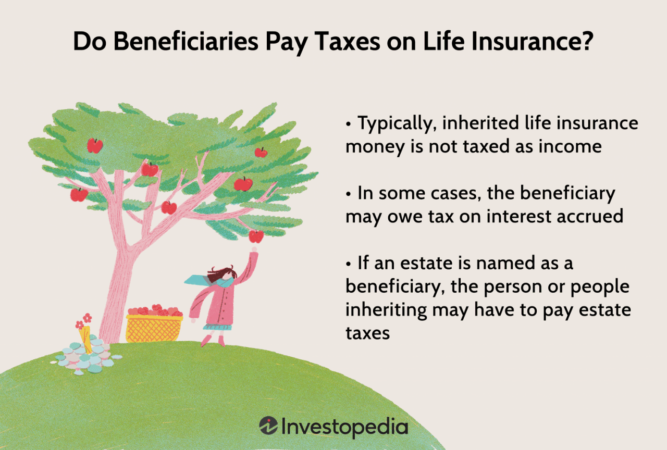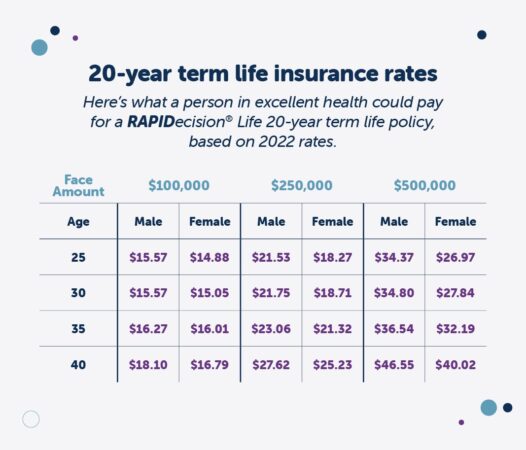
- Life Insurance Premiums
- Death Benefits
- Types of Life Insurance
- Tax Implications for Beneficiaries
- Superannuation and Life Insurance
- Taxation of Life Insurance Proceeds
- Tax Implications for Businesses
- Taxation of Life Insurance Policies: Is Life Insurance Taxed In Australia
- Taxation of Life Insurance Investments
- Ending Remarks
- FAQ Insights
Is life insurance taxed in Australia? This is a question many Australians grapple with, especially when considering the financial security of their loved ones. The answer, like most things in the financial world, is not a simple yes or no. The tax implications of life insurance in Australia depend on various factors, including the type of policy, the beneficiary, and whether the policy is held within a superannuation fund.
Understanding the tax implications of life insurance can help individuals and businesses make informed decisions about their coverage and ensure they maximize the benefits for themselves and their dependents. Let’s delve into the intricacies of how life insurance is taxed in Australia, exploring premiums, death benefits, and specific scenarios that may affect your tax obligations.
Life Insurance Premiums

In Australia, life insurance premiums are generally not tax-deductible. However, there are some exceptions for business owners and individuals in specific circumstances.
Deductibility of Life Insurance Premiums for Business Owners
Business owners can sometimes deduct life insurance premiums as a business expense. The key requirement is that the insurance policy must be taken out for a valid business purpose. For example, a business owner may take out a life insurance policy on a key employee to protect the business from financial hardship if that employee dies.
The Australian Taxation Office (ATO) provides guidance on the deductibility of life insurance premiums for business owners. Here are some important points to consider:
* Business Purpose: The life insurance policy must be taken out for a valid business purpose, such as protecting the business from financial hardship in the event of the death of a key employee or partner.
* Relationship to the Business: The insured person must be directly related to the business, such as an employee, partner, or director.
* Benefit to the Business: The policy must provide a financial benefit to the business in the event of the insured person’s death.
* Evidence of Business Purpose: The business owner must be able to provide evidence to support the claim for a deduction, such as a copy of the insurance policy and a statement outlining the business purpose.
Tax Implications of Premiums Paid by Individuals
Individuals generally cannot deduct life insurance premiums as a tax expense. However, there are some exceptions:
* Premiums Paid by Superannuation Funds: If a life insurance policy is held within a superannuation fund, the premiums are generally not taxed.
* Premiums Paid by a Beneficiary: If an individual pays life insurance premiums on a policy that they are the beneficiary of, the premiums are generally not tax-deductible.
* Premiums Paid by a Trustee: If an individual pays life insurance premiums on a policy held in trust, the premiums may be deductible depending on the specific circumstances.
Death Benefits
In Australia, the death benefit paid out by a life insurance policy is generally tax-free for the beneficiary. This means that the beneficiary does not need to pay any income tax on the money they receive. This is a significant benefit of life insurance, as it can help to alleviate the financial burden on loved ones after a death.
Tax-Free Status of Death Benefits
The tax-free status of death benefits is enshrined in the Australian Taxation Office (ATO) legislation. This means that the beneficiary does not have to declare the death benefit as income on their tax return. However, there are some exceptions to this rule.
Exceptions to Tax-Free Status
There are a few specific circumstances where death benefits may be subject to tax. These include:
- If the death benefit is paid to a company or trust, it may be subject to tax in the hands of the company or trustee.
- If the death benefit is paid to a beneficiary who is not a resident of Australia, it may be subject to tax in the beneficiary’s country of residence.
- If the death benefit is paid as a result of a life insurance policy that was taken out for business purposes, it may be subject to tax as a business expense.
It is important to note that these are just some of the exceptions to the tax-free status of death benefits. It is always best to speak to a financial advisor to ensure that you understand the tax implications of your specific situation.
Types of Life Insurance

Life insurance in Australia comes in various forms, each designed to cater to different needs and financial situations. Understanding the distinctions between these policies is crucial for making informed decisions about your life insurance coverage.
Types of Life Insurance Policies
Life insurance policies can be categorized into different types based on their coverage structure, premium payment terms, and benefits. The most common types of life insurance in Australia are:
- Term Life Insurance
- Whole Life Insurance
- Endowment Life Insurance
Tax Treatment of Life Insurance Products
The tax treatment of life insurance premiums and death benefits varies depending on the type of policy. The following table summarizes the tax implications for each type:
| Policy Type | Tax Treatment of Premiums | Tax Treatment of Death Benefits |
|---|---|---|
| Term Life Insurance | Premiums are generally not tax-deductible. | Death benefits are typically tax-free in the hands of the beneficiary. |
| Whole Life Insurance | Premiums are generally not tax-deductible. | Death benefits are typically tax-free in the hands of the beneficiary. |
| Endowment Life Insurance | Premiums are generally not tax-deductible. | Death benefits are typically tax-free in the hands of the beneficiary. However, the maturity value (if any) is considered taxable income. |
Tax Implications for Beneficiaries
In Australia, receiving life insurance death benefits is generally tax-free for beneficiaries. However, there are certain situations where beneficiaries may be required to pay tax on these benefits.
Tax-Free Death Benefits
In most cases, beneficiaries who receive life insurance death benefits do not have to pay any tax on them. This is because death benefits are considered to be a form of “non-assessable non-exempt income” under Australian tax law.
Taxable Death Benefits
While death benefits are usually tax-free, there are some exceptions. The most common situation where a beneficiary may be required to pay tax on death benefits is when the deceased person was a “superannuation fund member” and the death benefit is paid from their superannuation fund.
In these cases, the death benefit may be subject to tax at the beneficiary’s marginal tax rate.
Another exception is when the death benefit is paid as a lump sum and the beneficiary is considered a “tax dependent” of the deceased person. In this case, the beneficiary may be required to pay tax on the death benefit at their marginal tax rate.
Tax Implications for Superannuation Death Benefits
Death benefits paid from a superannuation fund are generally taxed as follows:
- Tax-free component: This is the portion of the death benefit that represents contributions made by the deceased person before 1 July 1999, as well as any earnings on these contributions. This component is tax-free for the beneficiary.
- Taxable component: This is the portion of the death benefit that represents contributions made by the deceased person after 30 June 1999, as well as any earnings on these contributions. This component is taxed at the beneficiary’s marginal tax rate.
The tax treatment of superannuation death benefits can be complex, and it is important to seek professional advice to ensure that the beneficiary is aware of their tax obligations.
Superannuation and Life Insurance

Superannuation, or super, is a retirement savings scheme in Australia. It allows individuals to save for retirement and access a range of benefits, including life insurance. Understanding how life insurance premiums are treated within superannuation and the tax implications of death benefits paid from super is crucial for both individuals and their beneficiaries.
Tax Treatment of Life Insurance Premiums Paid Through Superannuation, Is life insurance taxed in australia
Life insurance premiums paid through superannuation are typically tax-deductible for the individual. This means the premiums are paid from the individual’s pre-tax contributions to their superannuation fund.
The tax deduction on life insurance premiums paid through superannuation can significantly reduce the individual’s overall tax liability.
Tax Implications of Death Benefits Paid From Superannuation
Death benefits paid from superannuation are generally tax-free for the beneficiary. This is a significant benefit of superannuation, providing financial support to the deceased’s loved ones without incurring additional tax obligations.
The tax-free status of death benefits paid from superannuation is a key feature of the system, ensuring that beneficiaries receive the full amount without having to pay tax on it.
Tax-Free Status of Death Benefits Paid From Superannuation to Beneficiaries
The tax-free status of death benefits paid from superannuation to beneficiaries is a major advantage of this system. This ensures that the full amount of the benefit is available to the beneficiary, providing crucial financial support during a difficult time.
The tax-free status of death benefits paid from superannuation to beneficiaries is a significant benefit of this system, ensuring that the full amount of the benefit is available to the beneficiary, providing crucial financial support during a difficult time.
Taxation of Life Insurance Proceeds
In Australia, the tax treatment of life insurance proceeds is generally favorable. This means that, in most cases, the money received by a beneficiary upon the death of the insured person is not subject to income tax. This tax-free status applies to both lump sum payments and regular income streams.
Tax-Free Status of Death Benefits
Death benefits received by beneficiaries from life insurance policies are generally tax-free. This means that the beneficiary does not need to include the death benefit in their taxable income. This tax-free status applies to both lump sum payments and regular income streams.
Situations Where Life Insurance Proceeds May Be Taxable
There are a few specific situations where life insurance proceeds may be subject to tax. These include:
- Life insurance proceeds received as a result of a business transaction: If the life insurance policy was taken out as part of a business transaction, the proceeds may be taxed as income. For example, if a company takes out a life insurance policy on its key employee, the proceeds received upon the employee’s death may be taxed as business income.
- Life insurance proceeds received by a company: If a company receives life insurance proceeds, the proceeds may be taxed as income. This is because the company is considered to be a “taxpayer” in its own right.
- Life insurance proceeds received by a trust: If a trust receives life insurance proceeds, the proceeds may be taxed as income. This is because the trust is considered to be a separate legal entity.
Tax Implications for Businesses
Life insurance policies can be a valuable tool for businesses, providing financial protection in the event of the death of a key employee or business owner. However, it is important to understand the tax implications of life insurance policies for businesses. This section will explore the tax treatment of life insurance premiums, death benefits, and other relevant aspects.
Deductibility of Life Insurance Premiums
Life insurance premiums paid by a business are generally deductible for tax purposes if the policy meets certain criteria. The Australian Taxation Office (ATO) Artikels specific conditions that must be met for the premiums to be deductible.
The premiums are deductible if the policy is taken out for a business purpose, such as:
- To cover the cost of replacing a key employee.
- To provide funds for the business to repay a loan.
- To cover the cost of business expenses.
However, premiums paid for policies that are not taken out for a business purpose are not deductible. For example, premiums paid for a policy on the life of a shareholder who is not a key employee are not deductible.
The ATO provides detailed guidance on the deductibility of life insurance premiums for businesses. Businesses should consult with a qualified tax advisor to ensure that they are meeting the requirements for deductibility.
Tax Treatment of Death Benefits
When a business receives a death benefit from a life insurance policy, the benefit is generally considered to be taxable income. The tax treatment of the death benefit depends on the type of policy and the circumstances surrounding the death.
In some cases, the death benefit may be exempt from tax. For example, if the policy is a “key person” policy and the death benefit is used to replace the deceased employee, the benefit may be exempt from tax.
The ATO provides detailed guidance on the tax treatment of death benefits for businesses. Businesses should consult with a qualified tax advisor to determine the tax implications of receiving a death benefit.
Taxation of Life Insurance Policies: Is Life Insurance Taxed In Australia
In Australia, life insurance policies are subject to specific tax rules. Understanding these rules is crucial for policyholders and beneficiaries to ensure they comply with tax obligations and maximize potential tax benefits.
Taxation of Premiums
Life insurance premiums are generally not tax-deductible. This means that you cannot claim a deduction for the cost of your life insurance premiums when calculating your taxable income. However, there are some exceptions to this rule.
For example, if you are self-employed and your life insurance policy is taken out as part of your business, you may be able to claim a deduction for the premiums as a business expense. Similarly, if you are a member of a superannuation fund and your life insurance is included in your superannuation policy, the premiums may be tax-deductible depending on the specific fund rules.
Taxation of Death Benefits
Death benefits paid out under a life insurance policy are generally tax-free in the hands of the beneficiary. This means that the beneficiary does not have to pay any income tax on the death benefit received. However, there are some exceptions to this rule.
For example, if the beneficiary is a company or a trust, the death benefit may be subject to income tax. Additionally, if the death benefit is paid out as a lump sum and is used to purchase an asset, such as a property, the beneficiary may be subject to capital gains tax.
Tax Implications of Other Policy Features
Life insurance policies may include other features, such as surrender value, which can have tax implications.
The surrender value is the amount you would receive if you were to cancel your policy. This amount may be subject to income tax, depending on the circumstances.
For example, if you have paid premiums for more than 10 years and the surrender value exceeds the amount of premiums you have paid, the excess may be subject to income tax.
It’s important to note that the tax implications of other policy features can vary depending on the specific policy and the circumstances. It is always advisable to seek professional advice from a qualified financial advisor to ensure you understand the tax implications of your life insurance policy.
Taxation of Life Insurance Investments
Life insurance policies in Australia often offer investment options, allowing policyholders to grow their savings within the policy framework. These investments can provide potential tax benefits, but it’s crucial to understand the tax implications involved.
Tax Treatment of Investment Earnings
Investment earnings within a life insurance policy are generally taxed at a concessional rate, known as the “life insurance tax rate.” This rate is currently 30% for the 2023-2024 financial year. This means that only 30% of your investment earnings are taxed, while the remaining 70% remains tax-free within the policy.
Tax Treatment of Withdrawals
When you withdraw funds from your life insurance investment, the tax treatment depends on the type of withdrawal and the policy structure.
- Withdrawals of investment earnings: Withdrawals of investment earnings are generally taxed at your marginal tax rate, which is the tax rate you pay on your overall income. This means that the tax payable on your withdrawals may be higher than the concessional rate applied to your investment earnings.
- Withdrawals of capital: Withdrawals of your original capital contributions are generally tax-free, as long as you have held the policy for more than 10 years.
Tax Rules and Regulations
Specific tax rules and regulations apply to life insurance investments. It is important to consult with a financial advisor or tax professional to understand the specific tax implications for your situation.
For example, the “10-year rule” applies to capital withdrawals, meaning that you can withdraw your capital contributions tax-free after holding the policy for more than 10 years.
Ending Remarks
Navigating the tax landscape of life insurance in Australia can seem complex, but with careful planning and understanding, individuals and businesses can ensure their financial security while minimizing potential tax liabilities. Whether you’re a business owner looking to protect your assets or an individual seeking peace of mind for your family, understanding the tax implications of life insurance is crucial for making informed financial decisions. Remember, consulting with a qualified financial advisor can provide tailored advice and help you navigate the complexities of life insurance taxation in Australia.
FAQ Insights
What types of life insurance are available in Australia?
Australia offers various life insurance policies, including term life insurance, whole life insurance, and endowment life insurance. Each type has unique features and tax implications.
Can I claim life insurance premiums as a tax deduction?
The deductibility of life insurance premiums depends on your situation. For example, business owners may be able to deduct premiums for policies covering key employees. However, individuals generally cannot claim a tax deduction for life insurance premiums.
Are life insurance death benefits taxed in superannuation?
Death benefits paid from superannuation are generally tax-free for beneficiaries. However, specific rules and regulations apply, so it’s crucial to seek professional advice.
What are the tax implications of life insurance proceeds used for investments?
Investments within life insurance policies are subject to tax on earnings and withdrawals. The specific tax treatment depends on the investment type and policy structure.





